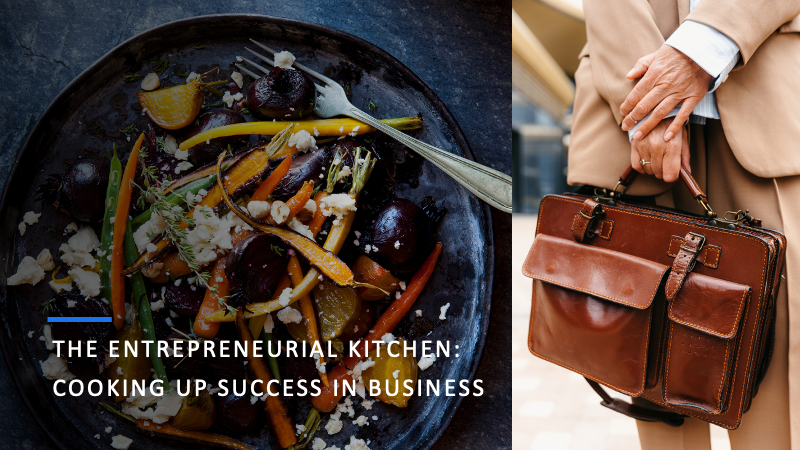It was right infront of my eyes, but I never saw it.
In principle, being an Entrepreneur is no different to being a Chef in the kitchen.
Much like a Master Chef in the kitchen, a successful entrepreneur must carefully blend various ingredients, follow a process, and have the patience to see their creation come to fruition. If you understand cooking, you’ll understand starting and running your own business.
In the world of entrepreneurship, success often comes down to a recipe of hard work, creativity, and perseverance. Let’s explore how the art of cooking parallels the journey of building a thriving business.
Gathering Ingredients = Investing in Your Business
Just as a chef begins by selecting the finest ingredients from the supermarket, an entrepreneur must invest time and resources into their venture. This initial investment is crucial for laying the foundation of a successful business.
Like choosing quality produce, entrepreneurs must carefully select their resources, whether it’s funding, talent, or technology, to ensure the best possible outcome for their business recipe.
Prep Work = Developing Systems and Processes
Before the actual cooking begins, a chef spends considerable time chopping vegetables, measuring ingredients, and organising their workspace. This preparation is akin to an entrepreneur developing systems and processes for their business.
By creating efficient workflows, establishing clear communication channels, and implementing effective management strategies, entrepreneurs set themselves up for smoother operations when things get busy.
Cooking Time = Thinking Long-Term
A delicious meal isn’t made in an instant; it requires time and patience. Similarly, building a successful business is a long-term endeavour.
Entrepreneurs must resist the urge for quick results and instead focus on steady growth and sustainable practices.
Like a slow-cooked stew that develops rich flavors over time, a business nurtured with patience and persistence will yield more satisfying results.
Balancing Flavours = Adapting to Market Needs
A skilled chef knows how to balance flavors, adjusting seasoning as needed to create a harmonious dish. In the business world, this translates to adapting to market needs and customer feedback.
Entrepreneurs must be willing to pivot their strategies, refine their products or services, and respond to changing market conditions to ensure their business remains relevant and appealing.
Presentation = Marketing and Branding
The way a dish is plated can significantly impact the dining experience. Similarly, how a business presents itself through marketing and branding can greatly influence its success.
Entrepreneurs must carefully consider their company’s image, messaging, and customer experience to make their business as appealing as possible to their target market.
Taste Testing = Gathering Feedback and Iterating
Before serving a dish to guests, a chef will taste and adjust as necessary. In business, this equates to gathering customer feedback and iterating on products or services.
Successful entrepreneurs are always open to constructive criticism and use it to improve their offerings continually.
Serving = Delivering Value to Customers
The ultimate goal of cooking is to serve a delicious meal that satisfies the diner.
For entrepreneurs, this means delivering value to customers through their products or services.
Like a chef who takes pride in seeing empty plates return to the kitchen, entrepreneurs should strive to create solutions that leave their customers satisfied and coming back for more.
Conclusion
The parallels between cooking and entrepreneurship are numerous and insightful. Both require a mix of creativity, technical skill, patience, and adaptability.
By approaching business with the same care and attention to detail that a chef brings to their culinary creations, entrepreneurs can craft successful ventures that stand the test of time.
Remember, whether in the kitchen or the boardroom, the key ingredients are passion, perseverance, and a willingness to learn and adapt along the way.

